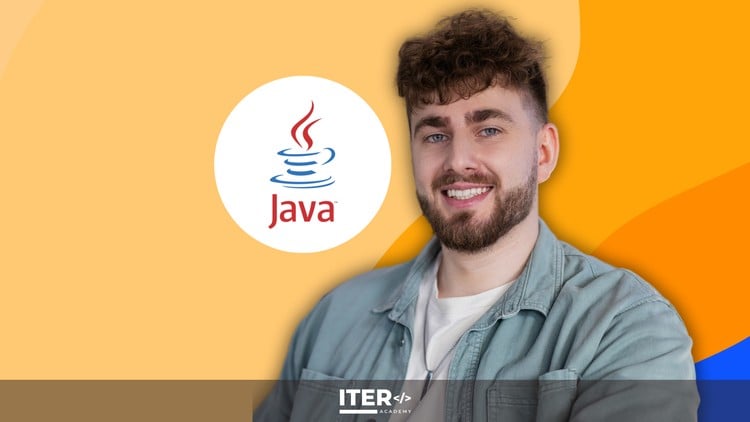
Java Basics: IDEs, Data Types, Variables, Operators, if-else, switch Statements, Loops, Methods, Arrays, Strings
⏱️ Length: 5.2 total hours
⭐ 4.50/5 rating
👥 16,335 students
🔄 March 2025 update
Add-On Information:
Note➛ Make sure your 𝐔𝐝𝐞𝐦𝐲 cart has only this course you're going to enroll it now, Remove all other courses from the 𝐔𝐝𝐞𝐦𝐲 cart before Enrolling!
-
Course Overview
- This course, “Java Basics in Practice with 35+ Exercises & Quizzes – 2025,” is your definitive launchpad into Java programming. Meticulously crafted for absolute beginners and those seeking a robust foundational understanding, it moves beyond mere theory to immerse you in practical, hands-on coding experiences from day one. We delve into Java’s fundamental building blocks, ensuring you grasp the ‘what,’ ‘why,’ and ‘how’ behind each construct. The curriculum builds confidence progressively, transforming abstract ideas into concrete skills through carefully designed challenges and interactive quizzes. You’ll gain practical experience writing clean, functional Java code by tackling diverse, real-world inspired problems, solidifying your knowledge. The course emphasizes an iterative learning process, encouraging experimentation and problem-solving, which are crucial for any aspiring developer. With its March 2025 update, the content is fresh, relevant, and aligned with current best practices in introductory Java education, making it an ideal starting point or a solid refresher. It serves as an essential stepping stone, preparing you for more advanced topics within the vast Java ecosystem, ensuring you build a programming mindset beyond just syntax.
-
Requirements / Prerequisites
- No prior programming experience in Java or any other language is assumed or required, making this course accessible to complete novices eager to start their coding adventure. Your primary prerequisites are a functional computer (PC, Mac, or Linux) with a stable internet connection, capable of downloading software and running an Integrated Development Environment (IDE) smoothly. A genuine curiosity and a willingness to learn are paramount; the ability to think logically and approach problems systematically will be greatly beneficial. Students should be comfortable with basic computer operations, such as navigating file systems, installing applications, and using a web browser. While not strictly mandatory, an eagerness to engage with the numerous practical exercises and actively participate in the learning process will significantly enhance your outcomes. Dedicating regular time for practice and review outside of the video lectures is highly recommended.
-
Skills Covered / Tools Used
- Beyond foundational syntax, this course equips you with critical thinking and problem-solving skills essential for any programmer. You will learn to break down complex problems into manageable, logical steps, a core principle of software development. Practical application of conditional logic (through `if-else` and `switch` statements) will teach program flow control based on dynamic conditions. Mastery of iterative structures (`for`, `while`, and `do-while` loops) enables automating repetitive tasks and processing data efficiently. You will gain proficiency in designing modular code using methods, understanding how to encapsulate functionality for reusability and maintainability. The course introduces effective strategies for debugging your code, identifying errors, and tracing program execution to resolve issues independently. Furthermore, you will develop an intuitive understanding of memory management as it pertains to basic data structures and object references. This promotes analytical reasoning and systematic problem-solving. You’ll work hands-on with a professional Integrated Development Environment (IDE), gaining familiarity with its features for code writing, execution, and error handling, establishing a comfortable workflow.
-
Benefits / Outcomes
- Upon successful completion of this comprehensive course, you will possess a solid and transferable understanding of core programming concepts, making you capable of writing basic yet functional Java applications from scratch. You will be able to confidently interpret and explain fundamental Java code, fostering a strong analytical foundation for further learning. This course empowers you to independently set up your Java development environment, write simple command-line programs, and tackle introductory coding challenges with competence. You will develop the ability to think like a programmer, translating real-world problems into logical steps and code. Graduates will be well-prepared to articulate their understanding of Java fundamentals in technical discussions and begin contributing to open-source projects or collaborative coding environments at a basic level. The practical experience gained from over 35 exercises and quizzes will serve as tangible evidence of your coding abilities, allowing you to showcase practical problem-solving skills. This robust foundation positions you perfectly to delve into more advanced Java topics such as Object-Oriented Programming (OOP) principles, data structures, algorithms, and frameworks, propelling your journey towards becoming a proficient Java developer.
-
PROS
- Highly Practical Approach: Emphasizes hands-on learning with 35+ exercises and quizzes, building real coding skills beyond theoretical knowledge.
- Up-to-Date Content: Refreshed in March 2025, ensuring relevance and alignment with contemporary Java practices and tools.
- Beginner-Friendly: Tailored for absolute novices, assuming no prior coding experience, making Java accessible to everyone.
- Strong Community Validation: Boasts a 4.50/5 rating from over 16,335 students, indicating widespread satisfaction and effectiveness.
- Structured Learning Path: Clearly covers essential Java basics from environment setup to fundamental control structures and data handling, providing a logical progression.
- Concise and Efficient: With 5.2 total hours, it delivers core concepts efficiently without unnecessary padding, respecting learners’ time.
- Foundational Skill Development: Builds a robust base for future learning in advanced Java, Object-Oriented Programming, and other programming paradigms.
-
CONS
- Requires Consistent Self-Discipline: As with any self-paced online course, significant personal commitment and consistent practice are essential to fully internalize the concepts and complete the numerous exercises.
Learning Tracks: English,Development,Programming Languages
Found It Free? Share It Fast!